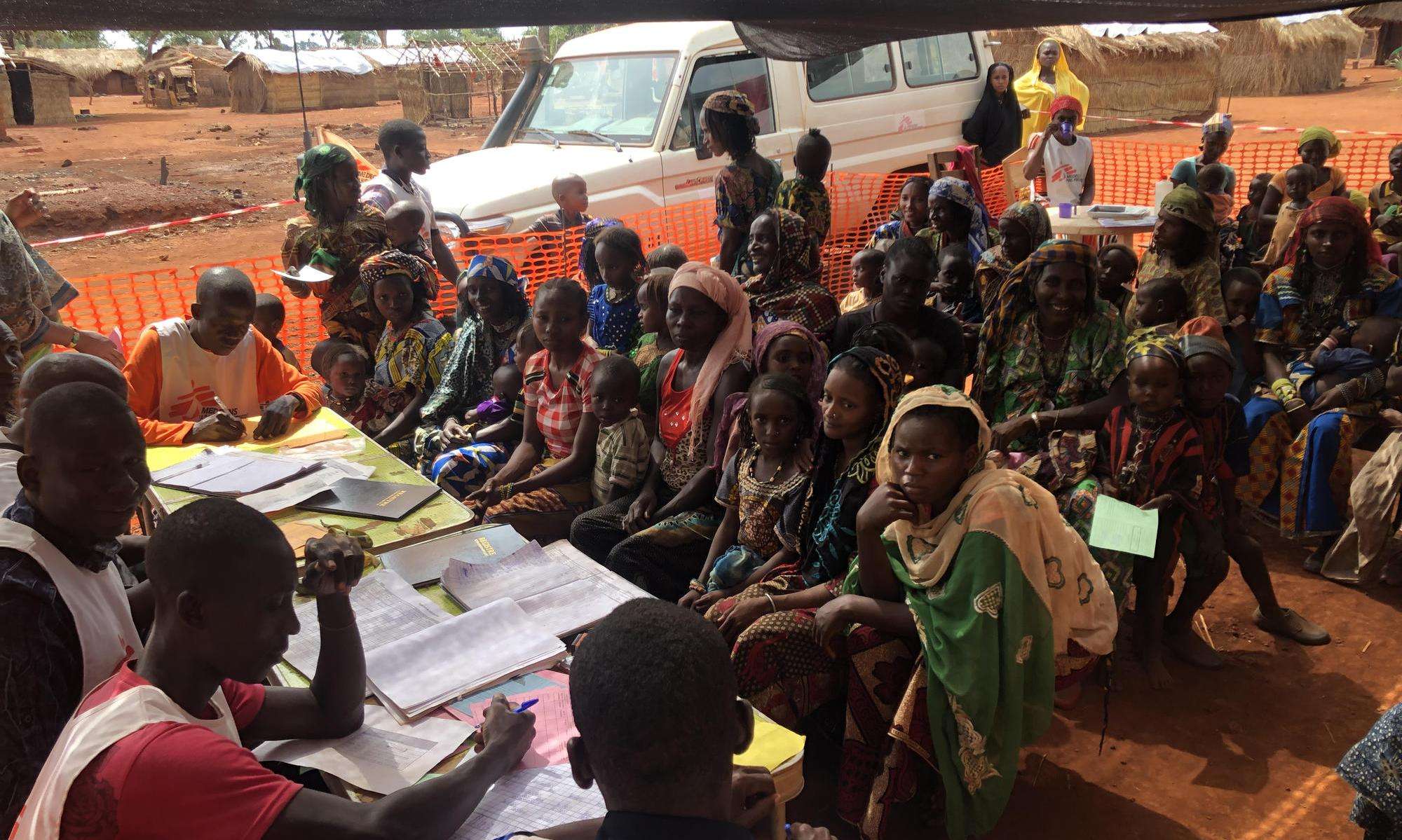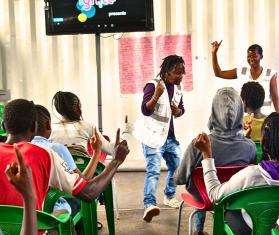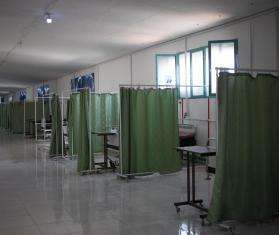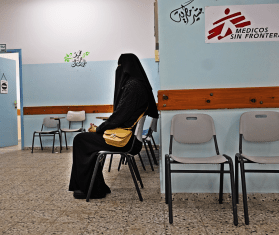Over the last six years, Central African Republic (CAR) has endured peaks of intense violence that have weakened an already precarious health system and deprived people of access to even the most basic health care. In many parts of the country, people live in constant fear of violence and are unable to leave their neighborhoods to seek medical services. In response, Doctors Without Borders/Médecins Sans Frontières (MSF) runs mobile clinics to bring medical care to them.
The town of Mingala, in Basse-Kotto prefecture in the southeast of the country, was inaccessible to humanitarian aid workers for more than two years due to intense violence. Insecurity and poor roads still pose a challenge, and armed groups maintain checkpoints along the route. MSF was finally able to return to the town earlier this year as part of an emergency response to meet the medical needs of the people in this isolated area.
"We traveled through ghost towns," said MSF project coordinator Talaré Diabri "[The settlements] have been burned down and [people] were living in the jungle for fear of being attacked."
Vaccinating women and children
In March 2019, MSF began the first phase of a vaccination campaign in Mingala, targeting children and women of childbearing age. A large crowd gathered around the MSF car when it arrived; a few children ran away in fear as they had not seen a motor vehicle in years. Women and children lined up, waiting for their consultations, as the elders sat in the shade under a mango tree. The subprefect—the only local authority still present in the area—drew the attention of the crowd. "This is a great day for us, a day of celebration," they said. "In more than two years we have not seen a doctor or a humanitarian worker in Mingala." The crowd applauded.
In two days, the MSF medical teams vaccinated 956 children and 760 women. In this first phase of the campaign, we vaccinated against polio, measles, pneumococcus—which causes respiratory infections such as pneumonia and meningitis— and yellow fever. MSF also administered the "five-in-one" vaccine that protects against diphtheria, tetanus, whooping cough, hepatitis B, and Hib disease (Haemophilus influenzae type B). As the MSF nurses administered the vaccines, nearby a midwife consulted with pregnant women while another nurse treated patients presenting with fever and tested for malaria. More than 1,600 mosquito nets were also distributed to help prevent the disease.
Deprived of basic services
Although some Central African Ministry of Health staff remain in Mingala, the only health center in the town was destroyed and looted in an attack. Without medical supplies or equipment, this facility is unable to cover the medical needs in the region. "During malaria season and after an episode of hemorrhagic diarrhea, I saw more than 10 deaths in children under five years old per week," said the health center's head nurse.
"I hope that other humanitarian organizations will also be able to reach this area of the country," said Omar Ahmed Abenza, MSF head of mission in CAR. “[It] has been totally deprived of health and other basic services."
In 2018, MSF ran 12 projects across CAR and provided more than 800,000 medical consultations, treated more than 500,000 people affected by malaria, assisted more than 19,000 births, and provided HIV/AIDS treatment for 6,000 patients.




